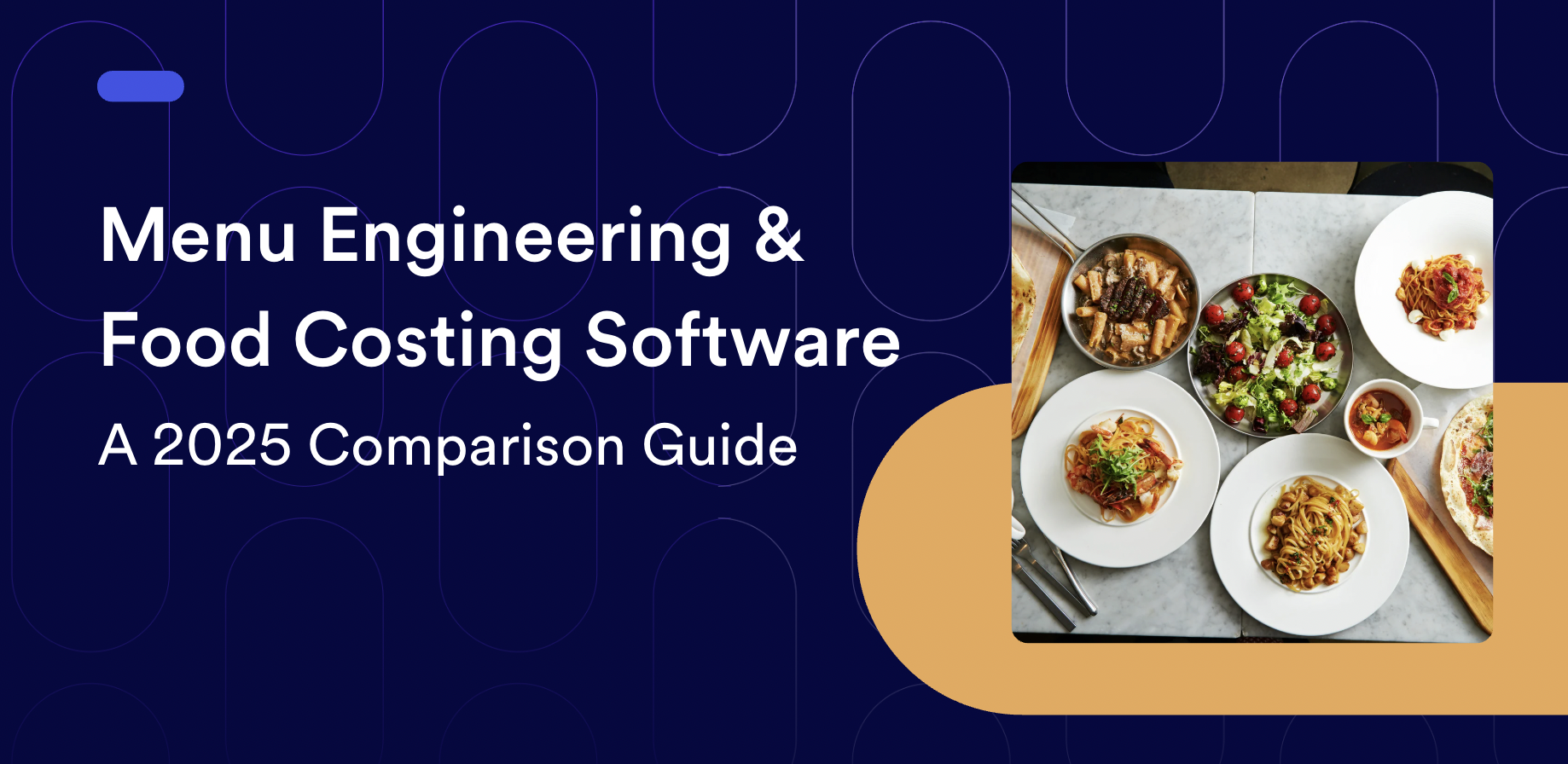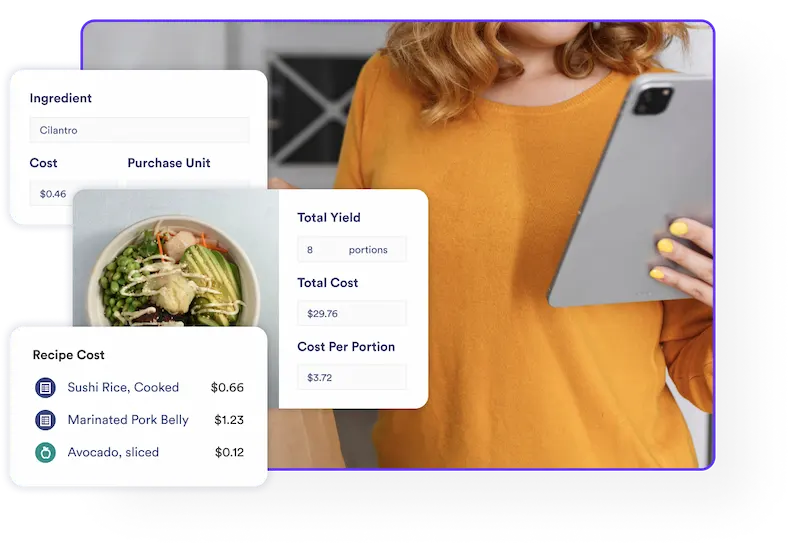In the high-stakes world of the culinary industry, an executive chef serves as the orchestrator of a harmonious kitchen, ensuring not only the quality of the dishes but also their team's well-being and growth. In this blog post, we explore the key ingredients that elevate ordinary chefs into the realm of culinary visionaries and effective leaders.
From fostering a culture of respect to mastering the delicate art of conflict management, these skills form the backbone of a successful executive chef's repertoire, shaping not only the dishes they create but the thriving kitchens they lead.
What is an Executive Chef?
An executive chef, often referred to as a head chef, is the leader of a professional kitchen. They are responsible for overseeing all aspects of kitchen operations, from menu creation to staff management and food quality control. Beyond cooking, an executive chef plays a vital role in budgeting, inventory management, and ensuring compliance with health and safety regulations.
This role requires not only exceptional culinary skills but also strong leadership and organizational abilities. Executive chefs often mentor their teams, fostering creativity while maintaining consistency and efficiency. They are the driving force behind a restaurant's culinary identity, ensuring every dish meets the highest standards.
Insights from Culinary Professionals: Becoming a Top-Tier Leader
The role of an executive chef extends beyond creating exceptional dishes—it involves setting an example and inspiring others to follow. Many culinary professionals emphasize that great leadership stems from a commitment to growth, respect, and collaboration. The best chefs aren't just masters of their craft; they are mentors, motivators, and role models for their teams.
Below are tips from fellow culinary professionals on how to create an environment where staff feel valued, motivated, and empowered to perform their best.
1. Be a respectful leader.
Treating your kitchen staff respectfully is a professional nicety and the cornerstone of a harmonious kitchen. A culture of kindness fosters a sense of belonging and shared purpose. When employees feel respected, they are likely to give their best effort, leading to heightened productivity and creativity in the kitchen. The chef is the chief culinary expert and a leader who inspires through example and consideration.
The traditional image of a fiery chef, barking orders and hurling criticisms, has become an outdated relic in modern kitchens. Prohibiting yelling in the kitchen is not a sign of weakness but a mark of strength and professionalism. It reflects an understanding that communication can be firm and practical without aggression.
Managing problems discreetly marks professional maturity and respect for all involved. Replacing loud reprimands with private, calm discussions is a transformative shift. It allows for correcting mistakes while preserving the individual's dignity.
“The first thing I said to my staff when opening One Fifth was, ‘I'm going to respect you guys, and you guys are going to respect us, and we're going to care about each other, and it's a family.’ And I know it sounds cliche because every corporate meeting you ever go to you'll hear the same thing. But after like a couple weeks or a month, one by one, people will just come up to me and just be like, you know, a lot of people say it, but they don't really do it. I've never worked anywhere where people actually have each other's back instead of sabotaging.”

Marc Forgione,
Chef/Owner, Restaurant Marc Forgione, Peasant, and One Fifth
2. Be considerate of people's time.
A well-defined time-off policy is the cornerstone of effective workforce management in any professional kitchen. It is imperative to communicate this policy clearly to all staff members, delineating the procedures for requesting time off, the requisite notice period, and any specific conditions that may apply. Ensuring that every team member understands the guidelines can minimize potential misunderstandings and conflicts.
The kitchen can proactively adjust schedules and allocate resources accordingly by requesting that staff members provide their time-off requests with as much advance notice as possible. This approach not only allows for smoother workflow planning but also demonstrates respect for the personal lives and commitments of the team members.
Communication becomes a linchpin in this process when confronted with last-minute time-off requests. Establishing an open culture encourages staff members to discuss their needs candidly. Executive chefs should encourage employees to provide reasons for a sudden request. This fosters transparency and aids in understanding the circumstances, contributing to a fair decision-making process.
3. Be a teacher and a student.
The willingness to teach is a hallmark of effective leadership. Sharing knowledge with the team enhances their skills and empowers them to contribute more meaningfully to the kitchen. A chef who mentors and educates their staff creates a collaborative atmosphere that fosters creativity and collective success.
Embracing continuous learning also sets the tone for a kitchen culture that values growth and improvement—chefs who remain stagnant risk falling behind. Continuous learning allows chefs to infuse innovation into their kitchens and maintain relevance in the industry. Team members are more likely to be motivated and engaged when they see their leader actively seeking knowledge. This creates a positive environment where everyone is encouraged to learn and develop their skills.
Teaching is not just about the present; it's an investment in the future. An executive chef who actively teaches and mentors their team effectively plans for succession. This ensures a smooth leadership transition and maintains the kitchen's standard of excellence even as roles evolve.
“Every cook needs a different level of attention; each has a different culinary skill set and things that pique their interests in the kitchen. It's your job to identify those needs, meet them where they are at, and help them to grow. As they grow, they will strive to learn more, to be better. It is important to remember your own growth here as well. Keep your cool under pressure, set a good example, but also listen to your team and learn from them. The beauty of the kitchen is the shared experiences that connect us.”

Sarah Hassler,
Director of Customer Success & Support, meez
4. Be an effective communicator.
When instructions are clear and concise, tasks are executed efficiently, and the kitchen functions harmoniously. An executive chef must convey their expectations with exactness. For example, sharing your recipes using software like meez leaves little room for misinterpretation. All recipes are updated in real time, and team members are notified of any changes. This improves consistency and eases the burden of training.
Every kitchen is a melting pot of personalities and skills. Effective communication enables an executive chef to understand and manage team dynamics. A chef can build stronger relationships, resolve conflicts, and create a cohesive and collaborative atmosphere by tailoring communication styles to resonate with different team members.
Beyond the kitchen doors, effective communication also impacts customer relations. An executive chef who can talk with guests, articulate the culinary vision, explain menu choices, and receive feedback with grace contributes to a positive dining experience. Communication is the bridge between the kitchen and the dining room, ensuring that the culinary journey is as enjoyable for the customer as it is for the team.
“If something wrong happens, then we work backwards to figure out what made it happen. And usually, almost a hundred percent of the time there's just a breakdown in communication, there's a tool that wasn't there, somebody is having a bad day and they just needed to take a break. There’s always a reason. I'm not working on the line all the time, but like a line cook changes the setup. I'm like, why'd you do it? I'm just curious what your thinking was. And sometimes I need to push back, but at least it's a conversation.”

Reem Assil,
Chef/Owner, Reem’s California
5. Be willing to roll up your sleeves.
The chef fosters a culture where no task is beneath anyone by demonstrating a willingness to perform any task in the kitchen, whether it's washing dishes, prepping ingredients, or cleaning surfaces. This boosts morale and reinforces the idea that every team member plays an integral role in the kitchen's success.
An executive chef's relationship with their sous chef is a delicate balance between friendship and authority. Leading by example in this context means setting high standards and actively participating in the collaborative effort. This approach creates a sense of camaraderie within the kitchen hierarchy. By working alongside the sous chef and offering guidance when needed, the executive chef builds a relationship based on mutual respect and shared goals, fostering a cohesive leadership dynamic.
A chef who leads by example also understands the importance of listening to their team. The kitchen is a dynamic space where creativity and innovation thrive when everyone feels their voice is heard. By actively seeking suggestions from team members and considering their input, the chef not only garners fresh ideas but also shows respect for the collective knowledge within the kitchen. Publicly crediting the contributions of team members further solidifies a culture of appreciation and recognition, motivating the team to bring their best to the table consistently.
“When I was an Executive Chef, I involved myself in every single part of the kitchen flow. Taking orders, serving customers, working on the line, doing the dishes, mopping the floor, cleaning the bathrooms and yes, killing the rats sometime. Taking the time to work alongside every member of my team helped me get to know them on a deeper level, therefore increasing the level of mutual respect and camaraderie.”

Emily Hersh,
Social Media Manager, meez
6. Be a shield for conflict.
Executive chefs must prepare to face challenges head-on while maintaining an optimistic outlook. Cultivating a positive mindset helps address conflicts with resilience and sets the tone for the kitchen atmosphere. An optimistic chef inspires the team to face challenges collaboratively, fostering a sense of unity during turbulent times.
An executive chef's unique role is that of a shield between ownership and staff. The pressures from ownership can often be intense, but a skilled chef acts as a buffer, preventing unnecessary stress from trickling down to the kitchen team. This involves effective communication with ownership, setting realistic expectations, and ensuring that the team can focus on their tasks without the burden of external pressures affecting their performance.
Documentation is also a critical aspect of conflict management. Executive chefs should adopt a diligent approach to record all occurrences, especially transgressions, using digital means for easy retrieval and reference. Detailed documentation serves multiple purposes – it provides a factual account of events, aids in tracking behavior patterns, and, when necessary, acts as a safeguard in more formalized conflict resolution processes.
7. Be clear about your vision.
Organization starts with a clear vision, and for an executive chef, setting transparent goals is the compass that guides the entire kitchen team. This involves establishing upward and downward goals – communicating expectations to the team while aligning with overarching organizational objectives.
An executive chef can create a principals sheet for their staff to ensure everyone in the kitchen aligns with overarching goals. This document outlines the chef's thought process, goals, and daily objectives, acting as a reference point for the team. A principal's sheet provides clarity and reinforces a sense of unity and purpose among the staff, fostering a cohesive and goal-oriented kitchen culture.
Organization is not a static state but a dynamic process requiring constant attention and refinement. Executive chefs should periodically review and update goals to adapt to evolving circumstances, industry trends, and team dynamics. This ensures that the kitchen remains agile and responsive to changes, maintaining a competitive edge and continuously striving for improvement.
When everybody says ‘my goal is consistency in the kitchen', everybody thinks like, oh, we're gonna do the same menu all the time. In this case, consistently is are you going to show up on time? Is your station set up every day the same way? It's not about the actual dish that you're gonna put on the same menu for 20 years. It's more about the chefs. Consistency is important because you need to have a routine, the way you execute your food, whatever that might be on a daily basis. And if you don't have that, whoever comes into your kitchen will not find it.”

Markus Glocker,
Chef & Owner, Koloman NYC and Partner at Flatiron Hospitality
8. Be creative and strategic.
Effective office management allows executive chefs to keep a watchful eye on food and menu costs. By implementing meticulous tracking and analysis, chefs can identify cost-saving opportunities without compromising the quality of ingredients or the dining experience.
An organized office system ensures consistency and quality across menus. Executive chefs can streamline ordering processes, manage inventory efficiently, and track ingredient costs to maintain the desired quality of dishes. This enhances the dining experience for customers and contributes to a consistent and positive reputation for the establishment.
Platforms like meez play a pivotal role in streamlining operations for executive chefs. meez goes beyond cost tracking. It streamlines administrative tasks, allowing executive chefs to focus more on the creative aspects of their roles. From digital recipe management to real-time recipe costing and automated invoice processing, meez simplifies time-consuming processes, allowing chefs invest their energy where it matters most – in creating exceptional culinary experiences.
Conclusion
In the tapestry of culinary leadership, a great executive chef weaves these eight skills seamlessly. As we celebrate those who embody these principles, we recognize that they are not just crafting exquisite dishes; they are curating a culture of excellence, innovation, and respect that resonates far beyond the kitchen doors.


.png)





